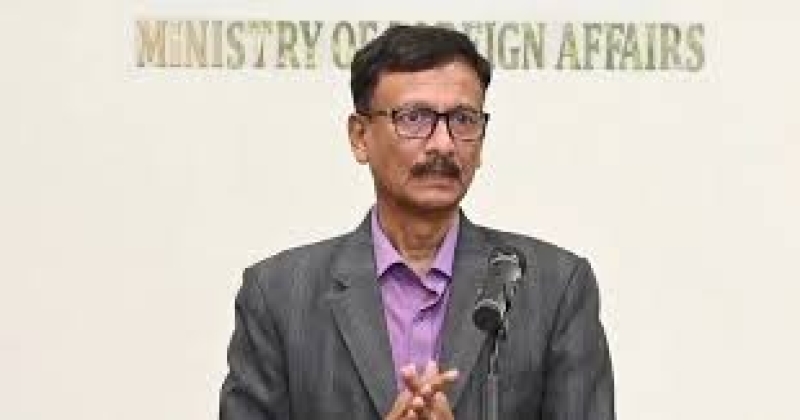- EU Deploys 56 Long-Term Observers Across Bangladesh |
- Appeals over nomination papers:18 more regain candidacies back |
- More than 100 dead in torrential rains and floods across southern Africa |
- Islami Andolan to Contest Election Alone in 13th Poll |
- 3 killed in Uttara building fire; 13 rescued |
Bangladesh had to accept huge Rohingyas under certain circumstances

Dhaka, 22 Dec - Foreign Affairs Adviser Md Touhid Hossain on Sunday said Bangladesh had to accept over 60,000 Rohingyas under certain circumstances through various unofficial channels, including border-related corruptions, despite its decision in principle not to allow any new arrival from Myanmar.
“We had a position in principle that no new arrival one will be allowed. No one was allowed formally. Another thing we need to keep in mind that there is huge corruption in the border. And it is true,” he said while talking to reporters at the Ministry of Foreign Affairs on his recent informal consultation at the ministerial level among Myanmar and its five neighbouring countries.
The six-nation consultation was held in Bangkok on Thursday under the chairmanship of the Thai Foreign Minister Maris Sangiampongsa.
The meeting was attended, among others, by Myanmar Deputy Prime Minister and Foreign Minister Than Swe.
Responding to a question, Hossain said the Rohingyas are not entering Bangladesh through a single route; they are coming through multiple routes, making it very difficult to stop.
Asked about a potential new influx of Rohingya refugees, he dismissed such possibility. "I do not believe another influx will occur, although many are concerned. We too share these concerns, but we must take measures to prevent it, working with the international community," Hossain said.
Meanwhile, speaking at a seminar on Sunday morning, Adviser Hossain said they are aware of the civil war situation currently prevailing in Myanmar, and the 1.2 million Rohingyas who were forcibly displaced from the Rakhine state under extreme atrocities, and are sheltered in Bangladesh for the last 7 plus years.
There has been no progress in their repatriation and the situation is further complicated by a non-state actor, the Arakan Army taking control of the entire border with Bangladesh, he said.
Referring to his meeting in Bangkok, the Foreign Adviser said, "I told them in no uncertain terms that peace and order will not be possible in Myanmar, and consequently in the region, unless the Rohingyas lodged in Myanmar can go back to their homes with security and rights."
It is incumbent on Myanmar and the regional powers to create a congenial atmosphere for their return, he said. “I had the scope to talk in details as it was an informal discussion and I explained our position clearly,” Hossain told reporters at the foreign ministry.
“If Rohingya problem is not resolved, peace and stability that you are thinking of will never be achieved,” he said, while conveying Bangladesh’s position during the meeting in Bangkok.
Hossain also said if the Rohingyas, mostly young people, cannot be given a hope and if no light is seen at the end of the tunnel, they will become desperate and they will do desperate activities. “I made it clear to them.”
The Foreign Adviser said offenders are on the both sides of the border and in the Rohoingya camps and they made huge money through illegal activities. If these issues are not addressed, peace cannot be achieved, he said.
Hossain informed Myanmar that the border is no longer under their control; rather it is now controlled by non-state actors like the Arakan Army. “As a state, we cannot engage with a non-state actor. Myanmar must find a way to resolve the issues related to the border and Rakhine."
In Bangkok, Hossain reiterated the call for a "comprehensive roadmap" for Rohingya repatriation with priority attached to ensuring stability in Rakhine State.
He urged ASEAN and other key regional actors to play a further proactive role in restoring peace, security, and democracy in Myanmar.
“Bangladesh has every interest to see lasting peace, stability and democracy in Myanmar, and a conducive environment in Rakhine State for the Rohingya to have confidence to go back there in safety and dignity," Hossain affirmed.

